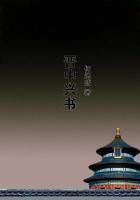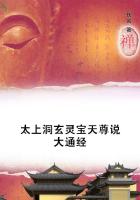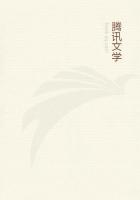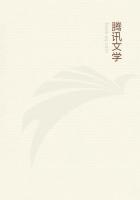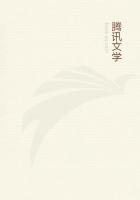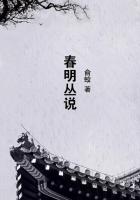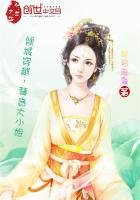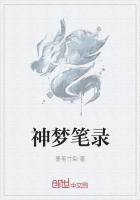For almost ten years, these two great parties, the Whigs (the middle class element, called by this derisive name be- cause in the year 1640 a lot of Scottish Whiggamores or horse- drovers headed by the Presbyterian clergy, had marched to Edinburgh to oppose the King) and the Tories (an epithet originally used against the Royalist Irish adherents but now applied to the supporters of the King) opposed each other, but neither wished to bring about a crisis. They allowed Charles to die peacefully in his bed and permitted the Catholic James II to succeed his brother in 1685. But when James, after threatening the country with the terrible foreign invention of a "standing army" (which was to be commanded by Catholic Frenchmen), issued a second Declaration of Indulgence in 1688, and ordered it to be read in all Anglican churches, he went just a trifle beyond that line of sensible demarcation which can only be transgressed by the most popular of rulers under very exceptional circumstances. Seven bishops refused to comply with the Royal Command. They were accused of "seditious libel." They were brought before a court. The jury which pronounced the verdict of "not guilty" reaped a rich harvest of popular approval.
At this unfortunate moment, James (who in a second marriage had taken to wife Maria of the Catholic house of Modena-Este) became the father of a son. This meant that the throne was to go to a Catholic boy rather than to his older sisters, Mary and Anne, who were Protestants. The man in the street again grew suspicious. Maria of Modena was too old to have children! It was all part of a plot! A strange baby had been brought into the palace by some Jesuit priest that England might have a Catholic monarch. And so on. It looked as if another civil war would break out. Then seven well-known men, both Whigs and Tories, wrote a letter asking the husband of James's oldest daughter Mary, William III the Stadtholder or head of the Dutch Republic, to come to England and deliver the country from its lawful but entirely undesirable sovereign.
On the fifth of November of the year 1688, William landed at Torbay. As he did not wish to make a martyr out of his father-in-law, he helped him to escape safely to France. On the 22nd of January of 1689 he summoned Parliament. On the 13th of February of the same year he and his wife Mary were proclaimed joint sovereigns of England and the country was saved for the Protestant cause.
Parliament, having undertaken to be something more than a mere advisory body to the King, made the best of its opportunities. The old Petition of Rights of the year 1628 was fished out of a forgotten nook of the archives. A second and more drastic Bill of Rights demanded that the sovereign of England should belong to the Anglican church. Furthermore it stated that the king had no right to suspend the laws or permit certain privileged citizens to disobey certain laws. It stipulated that "without consent of Parliament no taxes could be levied and no army could be maintained." Thus in the year 1689 did England acquire an amount of liberty unknown in any other country of Europe.
But it is not only on account of this great liberal measure that the rule of William in England is still remembered. During his lifetime, government by a "responsible" ministry first developed. No king of course can rule alone. He needs a few trusted advisors. The Tudors had their Great Council which was composed of Nobles and Clergy. This body grew too large. It was restricted to the small "Privy Council." In the course of time it became the custom of these councillors to meet the king in a cabinet in the palace. Hence they were called the "Cabinet Council." After a short while they were known as the "Cabinet."
William, like most English sovereigns before him, had chosen his advisors from among all parties. But with the increased strength of Parliament, he had found it impossible to direct the politics of the country with the help of the Tories while the Whigs had a majority in the house of Commons.
Therefore the Tories had been dismissed and the Cabinet Council had been composed entirely of Whigs. A few years later when the Whigs lost their power in the House of Commons, the king, for the sake of convenience, was obliged to look for his support among the leading Tories. Until his death in 1702, William was too busy fighting Louis of France to bother much about the government of England. Practically all important affairs had been left to his Cabinet Council. When William's sister-in-law, Anne, succeeded him in 1702 this condition of affairs continued. When she died in 1714 (and unfortunately not a single one of her seventeen children survived her) the throne went to George I of the House of Hanover, the son of Sophie, grand-daughter of James I.
This somewhat rustic monarch, who never learned a word of English, was entirely lost in the complicated mazes of England's political arrangements. He left everything to his Cabinet Council and kept away from their meetings, which bored him as he did not understand a single sentence. In this way the Cabinet got into the habit of ruling England and Scotland (whose Parliament had been joined to that of England in 1707) without bothering the King, who was apt to spend a great deal of his time on the continent.
During the reign of George I and George II, a succession of great Whigs (of whom one, Sir Robert Walpole, held office for twenty-one years) formed the Cabinet Council of the King.
Their leader was finally recognised as the official leader not only of the actual Cabinet but also of the majority party in power in Parliament. The attempts of George III to take matters into his own hands and not to leave the actual business of government to his Cabinet were so disastrous that they were never repeated. And from the earliest years of the eighteenth century on, England enjoyed representative government, with a responsible ministry which conducted the affairs of the land.
To be quite true, this government did not represent all classes of society. Less than one man in a dozen had the right to vote. But it was the foundation for the modern representative form of government. In a quiet and orderly fashion it took the power away from the King and placed it in the hands of an ever increasing number of popular representatives. It did not bring the millenium to England, but it saved that country from most of the revolutionary outbreaks which proved so disastrous to the European continent in the eighteenth and nineteenth centuries.

